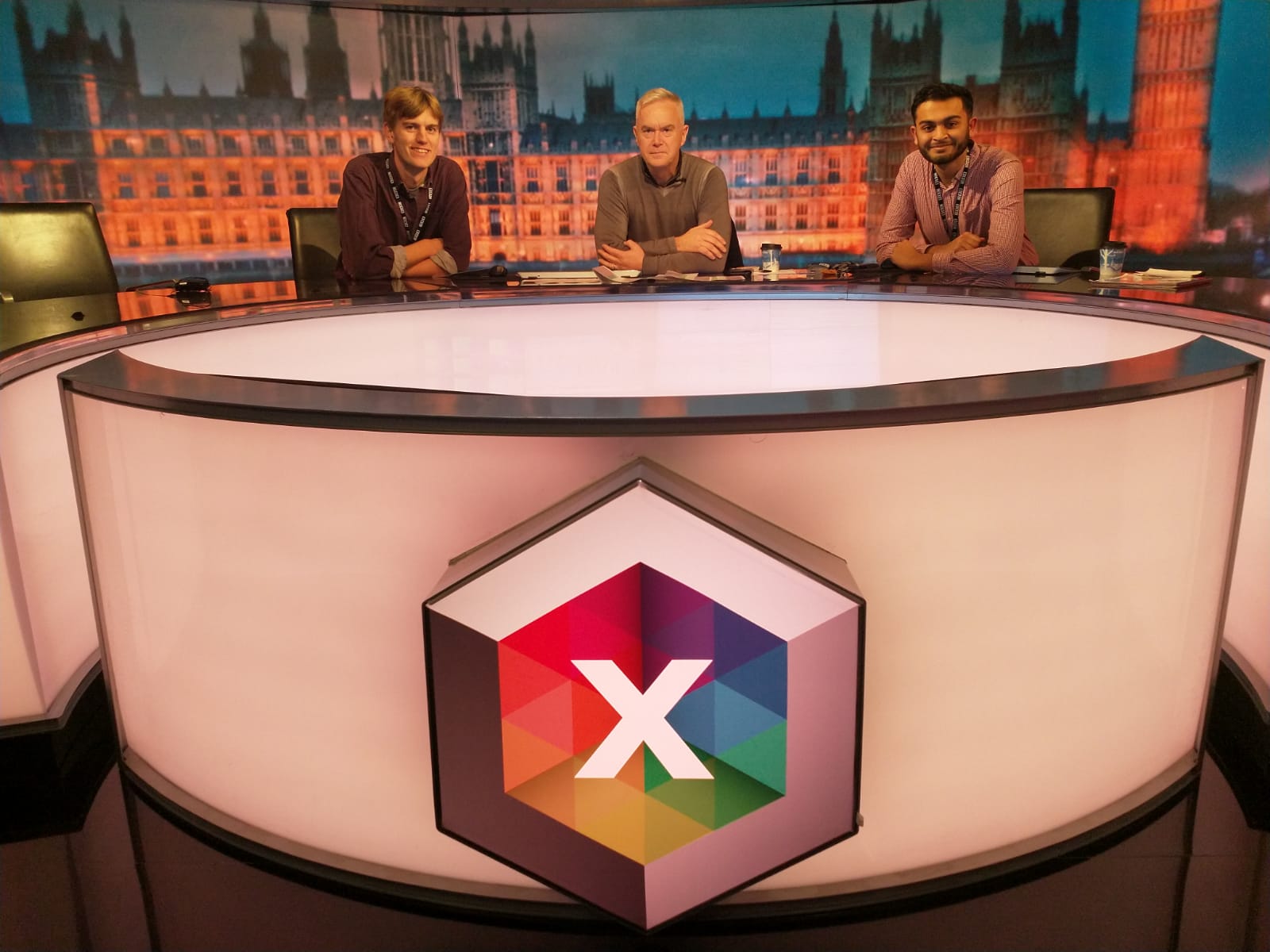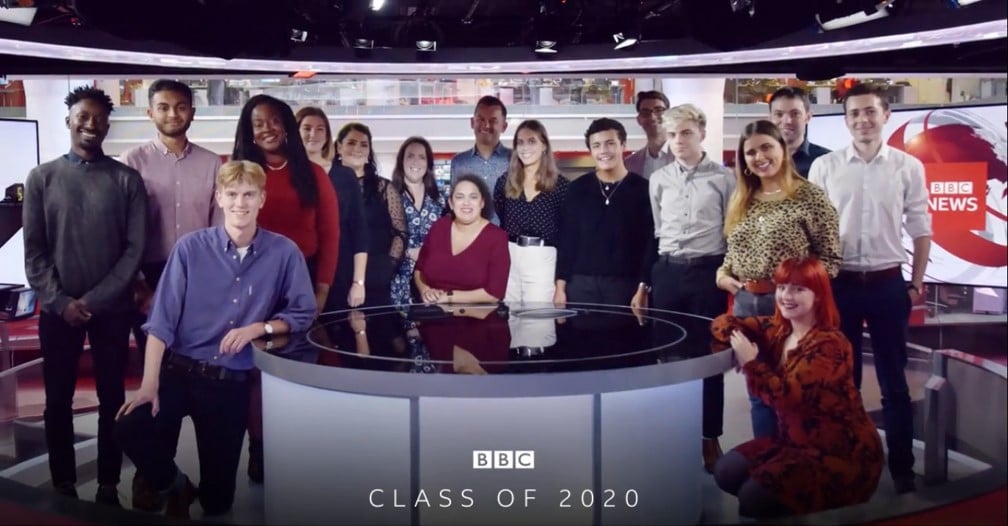Graduating Falmouth University in 2019 with a First-Class Honours in Sports Journalism, Shaun Dacostas’ career with the BBC has gone from strength to strength. After undertaking work experience at BBC Radio Cornwall, he landed a place on the prestigious BBC Journalism Trainee Scheme. Now a journalist at BBC News, Shaun is currently working as a digital producer for the UK’s most-watched morning news programme, BBC Breakfast.
The Covid-19 pandemic has affected the way all of us work but for Shaun, it’s had a particular impact on what he does for BBC Breakfast on a day-to-day basis.
“At the moment, due to the pandemic, we can’t do a lot of the bespoke filming. Before covid, we would film our own interviews and Q&As for their social media. We filmed a video with KSI, the YouTuber, and our videos got over 3 million views combined.”
The BBC Journalism Trainee Scheme ensures that those who are fascinated with news and current affairs will: “undertake training while working alongside news teams creating content for multiple platforms. You’ll get hands-on experience involving researching, writing, and broadcasting news. The scheme takes 10 months to complete and will equip you with the skills to move into a permanent role at the BBC.”
Individuals fortunate enough to be selected for the programme are given first-rate training with senior journalists at the BBC and liaise with a mentor to guide them throughout.
Pre covid, Shaun is in the BBC studio at 5.45am to prepare digital content before the show airs at 6am, and regularly works with key figureheads of the programme such as Naga Munchetty, Charlie Stayat and Mike Bushell. His job role entails ensuring the BBC’s social media frequently engages with their audience, through short videos with interviewees that are exclusive to the platform.

Falmouth University Sports Journalism Graduate Shaun Dacosta (right) with BBC Breakfast Presenter Mike Bushell (left).
In April of this year, Shaun expects to be working on the TV output at BBC Breakfast. He recognises the importance of having a ‘unique experience’ that makes you stand out and believes that his pre-involvement with the BBC and understanding how their platforms work, is why he was selected for the scheme.
“I was really fortunate to do work experience at Radio Cornwall and I gained freelance work with them. I also did some work experience with ESPN, where I also got some freelance opportunities.”
“Three days before graduation I found out I had been offered the scheme with BBC Breakfast.” Shaun admits that he was uncertain whether to accept the invitation, as he had been working at 5 Live Sport and ‘loving it’. He added that he is pleased that he accepted, as he still got to continue working at BBC 5 Live Sport before the training scheme began in October.

Shaun Dacosta (right) with BBC Presenter Hugh Edwards (centre) and Jack Hunter (left), successful journalism graduate scheme applicant.
“Fifteen people were accepted for the scheme and it had between five and eight thousand applicants.”
He offered advice for anyone interested in applying for the scheme and said that planning on how to pitch a story, for a plethora of different outlets, such as BBC Breakfast, the 10pm news, and how this would vary to their radio and social media presence is important. Shaun explains that focusing on ‘serving underserved audiences’ is a necessity in applying for the BBC.
When questioned on the one piece of teaching he gained from his time at Falmouth University that he still applies daily in his work at the BBC, he said: “Taking responsibility and using initiative for your stories at University is really important. Proving to editors and journalists that you can do this and that you’ve done this before really helps.”

